REXUS Elements
Participatory scenario planning
The central aim is to construct a number of desired futures, including clear pathways for their potential realization, through a series of collaborative workshops.
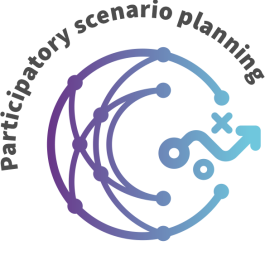
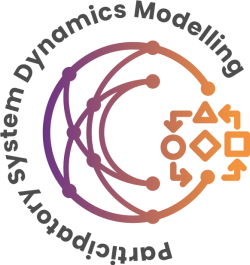
Participatory System Dynamics Modelling
System Dynamics is a methodology to understand and discuss the evolution of interconnected variables in a complex system. The goal of a System Dynamics approach is to analyse the dynamics and to identify action points within the system that have the potential to change the problematic trend to a more desirable one.
Systems Dynamics uses a holistic approach which helps to overcome ‘silo-thinking’ (i.e. the fragmentation between the Energy-Water-Food-Climate-Ecosystems sectors), highlighting the high interconnectedness among sectors and among the multiple agents involved in/impacted by NEXUS resources management.
In REXUS, stakeholders will actively participate in different stages of the modelling process, including problem definition, system description, identification of policy levers, model development and policy analysis. The Participatory Systems Dynamics Modelling process used by REXUS is more than about simply eliciting knowledge, rather involves building shared ownership of the analysis, problem, system description, solutions and a shared understanding of the trade-offs among different decisions.
Models to support SDG delivery – Coupled resource flow management
In managing coupled natural resources systems, decision-makers need to understand how the implementation of policy in one sector impacts demand for resources in other sectors across the water, energy, food and climate Nexus. Simultaneous fluxes in resources can be shown through a series of interlinked dynamic Sankey diagrams for each resource, showing the flow from basic resource (e.g. coal, surface water, and forested land), through transformations (e.g. fuel refining and desalination), to final services (e.g. sustenance, and transportation).
Feedback loops, as studied in the System Dynamics Modelling, will be introduced for the first time in couple resource flow analysis. Analysis results are likely to differ significantly compared to the linear relationship analysis, providing significant new insights for future policy development.
The PSDM approach and coupled resource flow analysis will leverage the whole spectrum of the REXUS data to combine bio-geophysical and socio-economic data (observations, statistics, model outputs) in the context of delivering the Sustainable Development Goals.
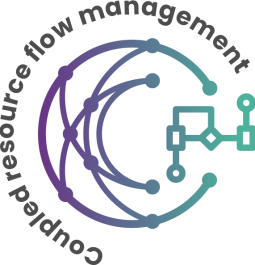
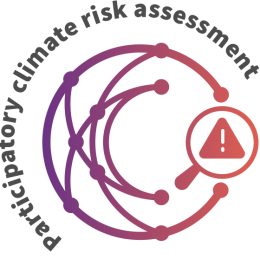
Participatory climate risk assessment
Central to the REXUS approach is an integrated assessment of climate risks to water, food and energy security, in order to analyse Nexus cascading effects. The project therefore proposes the analysis of long term impacts of climate change on existing operational management strategies and risk management strategies, which might not be perceived immediately (i.e. impact of acute shocks attributed to climate change, e.g. extreme flooding) on the three domains. Understanding these risks is critical to planning for resilience through diversification of WEF sources and/or protection of the resource or infrastructure supporting the resource and associated service provision (e.g. transport networks).
The project will leverage the partners’ climate modelling capabilities to produce downscaled climate projection information (e.g. temperature, precipitation). It will also take advantage of the “Database of Global datasets on Essential Climate Variables and Flow Indicators” (DELTA).
Climate risk assessments will be integrated in PSDM through the elaboration of policy and alternative pathways analysis.
Water, Energy, Land accounting and footprints
Water Accounting & footprints
Water accounting as well as the associated footprint will be evaluated the pilot areas, at the existing conditions as well as under the explored scenarios for land use planning, climate change and demographics. A combination of methods and data will be used for water accounting and footprint calculations (including the estimation of uncertainty ranges), tailored to the specific environments of the pilot cases.
Energy and carbon accounting and footprints
Energy requirements, energy sources and associated carbon accounting and footprints will be evaluated based on the different case studies and forecasting scenarios. Environmental Life Cycle Assessment (E-LCA) approaches will be used to assess the current status for energy sources (i.e. hydropower plants vs alternative renewable energy sources) and their link to the food system (evaluating different irrigation systems, energy embedded in fertilizer and pesticide production) and water systems (i.e. considering groundwater recharge vs water treatment or regenerate water).
Land-use mapping & Earth Observation (EO)-based indicators
A geo-database will be established to include soil and land characteristics that reflect efficient management of soil and land resources, as well as limitations for optimal land-uses with limited inputs. Maps of biogeophysical parameters will be generated using a methodology based on EO, in-situ, and model data, as well as regional and global databases, e.g. soil properties from the SOILGRIDS database and other attributed data, such as topography and climate conditions. A risk-based approach will take yield potential analysis further to elucidate the impacts of land & water management and global climate change on the yield potential for major staple food crops in REXUS use cases. Future land use suitability will be predicted under different scenarios of climate change.

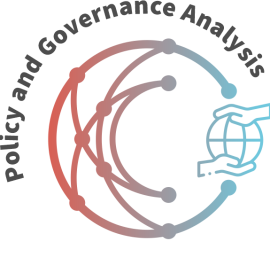
Policy and Governance Analysis
The Nexus approach requires cooperation and dialogue amongst the institutions representing each sector for the formulation of genuinely integrated policy. A significant challenge for the implementation of this approach is that the governance of water, energy and food are often entrusted to different sector-specific institutions, with additional complexity arising from both the distribution of competences. In practice, the institutional and social dynamics within each sector operate independently of one another, which favours silo-driven policies.
REXUS proposes to analyse how conductive are existing governance structures and policy frameworks for mainstreaming Nexus considerations. In order to do so, it will undertake an assessment of the extent to which the Nexus approach fits in existing legal instruments. REXUS will also analyse whether some emerging integrated policy processes capture the key specificities of the Nexus approach, namely, the need for inter-sectoral, cross-scale and stakeholder integration.
Ecosystem-based Adaptation (EbA): Solutions Selection Framework
While there is a growing evidence base on the effectiveness of EbA approaches and increasing range of tools to support practitioners and policy-makers in their planning and application, some important gaps remain, including on matching solutions to specific circumstances and stakeholder needs. REXUS will address this gap by offering decision makers access to an evidence-based framework and guidance – the REXUS Solutions Selection Framework – to support the selection of suites of solutions that incorporate nature-based approaches to address challenges in increasing the resilience of the WEFC nexus.
To do so, the project will undertake a critical review of existing frameworks for evaluating options for adaptation and building a resilient Nexus, to draft a nexus-appropriate framework for evaluating options for increasing resilience. To ensure the framework meets the end-user needs in the pilot areas, REXUS will engage closely with relevant stakeholders. To feed into the development of the REXUS Solutions Selection Framework, the project will identify the potential role of EbA solutions (individually or as an integrated option with grey solutions) for addressing the challenges identified by the pilot cases, as well as opportunities for a climate resilient nexus.


Ecosystem-based Adaptation (EbA): Valuation
Valuations approaches: While the environment provides several ecosystem services, responsible for human survival and well-being on Earth, most ecosystem services are provided without a market transaction, i.e. without a price paid by the users of the services. As a consequence, these externalities are usually neglected for their value, and therefore are increasingly depleted. Economic assessment of ecosystem services are conducted to address this gap, however usually these highlight individual aspects, and fail to deal with the complexity of interconnections between different sectors. REXUS, instead works to connect Nexus component in a unique integrated assessment, focusing on demonstrating the positive linkage between Nexus and EbA through viable business cases.
Nature-based Solutions, including EbA, can play a significant role in facing multiple nexus challenges thanks to their characteristics of multi-functionality and versatility. Precisely these multi-functional characteristics shall be reflected in the socio-economic assessments of REXUS (as opposed to other development options, e.g. human engineered systems). Environmental economic analyses will be run on possible EbA options that are suitable in the context of the pilot cases. Multiple conflicts that arise at several scales will be addressed in an innovative collaborative way. The assessment of applicability of EbA solutions ought to be done through consultation with several types of stakeholders: for this reason, case study-specific consultation processes will be adopted, foreseeing both analytical analysis and events and surveys.
